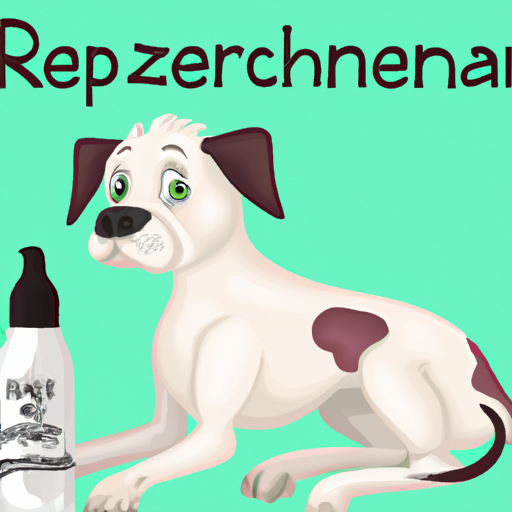As a pet owner, watching your furry friend struggle with itchy, irritated skin can be heartbreaking. Eczema, a common skin condition in dogs, can cause severe discomfort and distress for your pet. But don’t worry – this condition is manageable with the right care, and your dog can still lead a happy, healthy life. This comprehensive guide will explore how to treat eczema in dogs, covering everything from identifying symptoms to various treatment methods and preventative measures.
Table of Contents
– Understanding Eczema in Dogs
– Identifying Eczema
– Available Treatments
– Home Remedies
– Preventative Measures
– Frequently Asked Questions
Key Takeaways
– Eczema in dogs can be caused by various factors, including allergies, stress, and environmental conditions.
– Identifying eczema early can make treatment more effective.
– There are several treatment options available, both medicinal and natural.
– Home remedies can provide additional relief for eczema symptoms.
– Regular grooming and a balanced diet can help prevent eczema in dogs.
Understanding Eczema in Dogs
Eczema, also known as canine atopic dermatitis, is a skin condition characterized by itchy, red, and inflamed skin. It’s often caused by an allergic reaction to something in the dog’s environment, such as dust mites or pollen, but can also result from food allergies or stress. One Top Dog provides a more in-depth look at the causes and symptoms.
Identifying Eczema
Identifying eczema in your dog early is crucial for effective treatment. Common symptoms include:
1. Persistent scratching
2. Redness and inflammation
3. Dry, scaly skin
4. Hair loss
5. Open sores and infection from scratching
Available Treatments
There are several treatment options available for managing eczema in dogs. The right one for your pet will depend on the severity of their condition and the underlying cause of their eczema.
- Medications: Your vet may prescribe topical creams, antibiotics, or antihistamines to manage symptoms and prevent infections. Steroids are also sometimes used for short-term relief of severe symptoms.
- Allergy Shots: If your dog’s eczema is caused by an allergy, immunotherapy (allergy shots) may be an effective long-term solution.
- Medicated Baths: Medicated shampoos and conditioners can provide relief from itching and inflammation. These products often contain ingredients like oatmeal, hydrocortisone, or aloe vera.
For more specific advice on treating your pet’s eczema, consult with your vet or visit a trusted resource like PetMD.
Home Remedies
Alongside vet-recommended treatments, there are several home remedies that can provide relief for your dog’s eczema symptoms. Remember, these should not replace a visit to the vet but can be used in conjunction with prescribed treatments.
- Oatmeal Baths: Oatmeal has natural anti-inflammatory properties that can soothe itchy and irritated skin. This article from One Top Dog provides a step-by-step guide on giving your dog an oatmeal bath.
- Coconut Oil: Applied topically, coconut oil can moisturize dry skin and promote healing.
- Aloe Vera: Aloe vera can help soothe inflammation and promote healing. However, ensure it’s pet-safe and doesn’t contain aloin, which can be harmful to dogs.
Preventative Measures
Preventing eczema involves reducing your dog’s exposure to allergens and maintaining good skin health. Here’s how:
- Regular Grooming: Regular baths with hypoallergenic shampoo can help remove allergens from your dog’s fur. Regular brushing can also help keep your dog’s skin healthy by distributing natural oils and removing dead skin.
- Diet: A balanced diet rich in Omega-3 fatty acids can improve skin health and reduce inflammation. One Top Dog has more information on creating a balanced diet for dogs.
- Limit Allergen Exposure: If possible, limit your dog’s exposure to known allergens. This might involve changes to your home, like using air purifiers, or limiting outdoor time during high pollen seasons.
Frequently Asked Questions
1. Can eczema in dogs be cured?
While there’s no definitive cure for eczema, the condition can be managed with the right treatments and preventative measures.
2. Can I use human eczema cream on my dog?
It’s not recommended to use human medication on dogs without consulting with a vet first. Some ingredients may be harmful to dogs.
3. How long does it take for eczema to clear up in dogs?
The length of treatment can vary depending on the severity of the condition and the effectiveness of the treatment. Your vet can provide a more accurate timeline based on your dog’s individual case.
In conclusion, while eczema can be a challenging condition to manage, understanding its causes and symptoms, combined with effective treatment and preventative strategies, can significantly improve your dog’s quality of life. It’s important to consult with a vet for a proper diagnosis and treatment plan.



